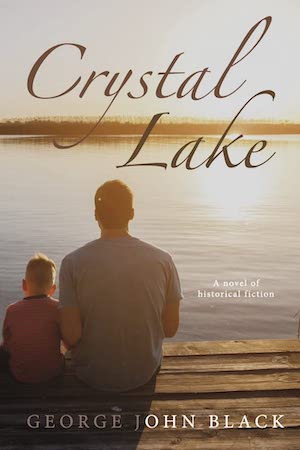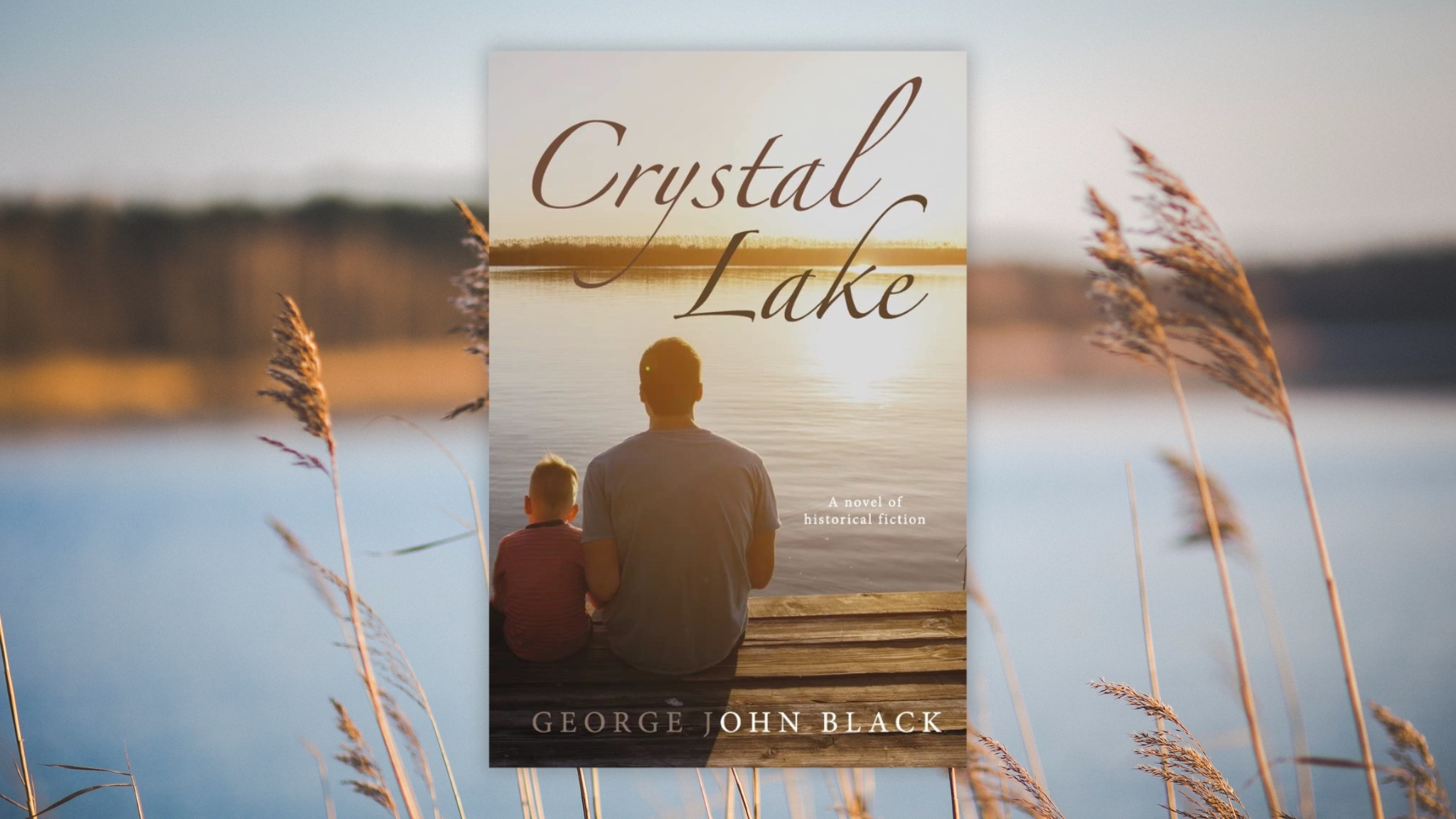Crystal Lake by George John Black
George John Black’s new novel Crystal Lake (BookBaby) offers the rich story of one American family as it spans the twentieth century, told from the standpoint of a dynamic father-son relationship that unfolds over decades.
Told in three chronological parts, Crystal Lake takes us from Normandy to Africa, from Honduras to Big Sky, Montana and from Dubai to the Philippines. The story opens with the third person account of George, leaving his immigrant parents in Gardner, Massachusetts to go fight in WWII as part of the Greatest Generation, those who “did everything that was asked of them and so much more.” Juxtaposed is John’s first-person narrative as he sets off just after college to volunteer for the Peace Corps in politically torn equatorial Africa. An additional third-person narrative also emerges later in the novel, of Sean and Bridget, John’s maternal grandparents who leave an economically ravaged Tuam, Ireland in August of 1918, to move to Jamaica Plain, Massachusetts in search of a better life for their family-to-be. As careers, family migrations and love interests evolve, Black illustrates how “the decisions made early in our lives almost always reverberate throughout our lives in ways that are only revealed as we go … and indeed reverberate across generations.”
While the story alternates between the separate lives of father George and son John, the two connect during John’s regular visits back to his central Massachusetts hometown where his dad still lives. There they drive over to Crystal Lake to “sit together on a wooden bench overlooking the lake. Always the same bench.” It’s where George talks about his regrets and accomplishments and helps John choose the next steps in a life yet to be lived. The bench not only bears witness to their closeness but also sits in front of a ridge where Kathleen — wife to George and mother to John — is buried.
Pacing is high throughout the story. We move from the treacherous espionage required of George and his first wife Yvette as they move through Normandy in the worst days of WWII, wondering if they will get out of France alive. Decades later John also finds himself up in danger, up against the shady world of diamond trafficking. “And what do you do with the profits?” I asked Gaspard. I realized immediately it was a stupid question … The diamond merchant’s smile momentarily disappeared, but just as quickly returned. “TIA, mon ami. TIA.” I’d heard that expression before, usually in reference to questionable business ethics and dealings. TIA. This Is Africa.”
Impeccable Research and Compelling Characters
It is Brown’s rich sense of place that adds a vivid breadth to the novel. His impeccable research makes the smallest locale feel significant. Placing George and Yvette in France, Black swiftly connects 1912 to 1944 with a tidbit that makes an otherwise unknown town come alive. “Located on the west coast of France in the famous region of Normandy, Cherbourg was one of the first places that the Titanic visited on its fateful maiden journey. Nearly three decades later it was overrun by the Nazis in the days following the fall of Paris.” When George is brought from France to the Biltmore Hotel in Coral Gables, Florida, Black again paints the history for us. Built just after WWI, the hotel that has hosted the likes of President Roosevelt and Al Capone becomes Pratt General Hospital, as the US military converts it from a dream-like setting of hand-painted frescoes on vaulted ceilings to a military hospital, “… sealing its windows with concrete and covering its travertine floors with government-issue linoleum.” When John arrives in Bukavu, Zaire (now Democratic Republic of the Congo since 1997), Black notes how it was established in 1901 as a Belgian colony, “built upon five peninsulas that jetted out in the lake, and often described as ‘a green hand, dipped in the lake.’”
For both George and John, the fulfillment they seek does not come right away, but as they reflect on the bench by the lake, regrets do not take center stage. George’s primary advice to his son is simple but important. “If you get knocked down, get right back up, and keep moving forward. Always forward.” As Black notes, life is a collection of choices, some small, and others that change the course of your life. What matters is telling and remembering the stories. “It is, in the end, one of the main roles of a family. To remember the deeds of one generation by passing on the stories to the next.” Crystal Lake makes us mindful that it is a more meaningful world where family ties are cherished.




